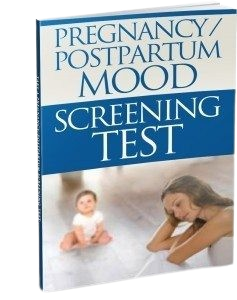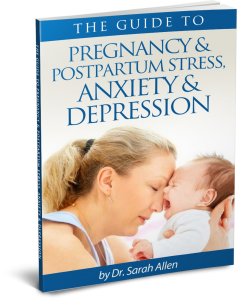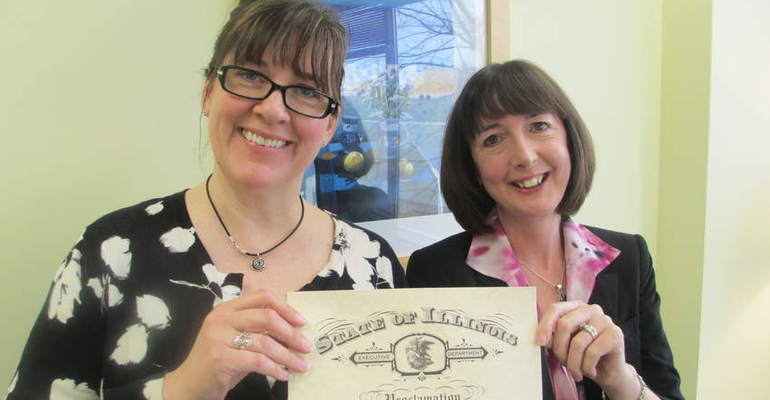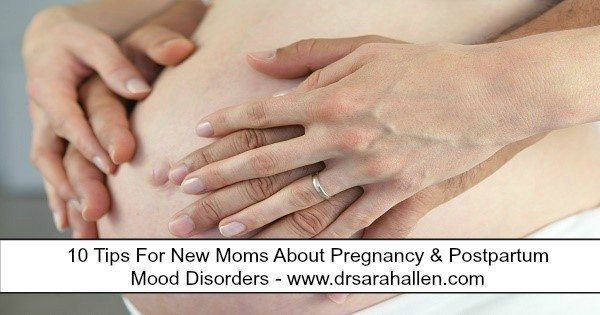
We have this image of a smiling pregnant mom, hands resting on her “bump” and being radiant. Or perhaps our mental image of motherhood is a new mother looking lovingly at the infant she is cradling. Dad’s arm draped over her shoulder smiling down at the baby.
Then we have the reality. Being pregnant or having a baby can be tough. Women experience many fluctuations in hormones or experience huge life changes i.e. financial stress from giving up work, moving from the city to the suburbs etc. Many women have also moved away from where their parents live and have limited family support. Many do not have much practical or emotional support even from the baby’s father. Women who have had previous episodes or a family history of mood disorders such as anxiety and depression are also more at risk of experiencing them when they are pregnant or postpartum.
All these factors affect a woman’s experience of motherhood and the way she copes. Keep in mind these 10 tips are for women who want to know what pregnancy and postpartum mood disorders are, how to prevent them, and how to get treatment if your experience of motherhood is not all you expected it to be.
5 Things To Do That Help

- Realize that women don’t just get depression after the baby is born
- Know pregnancy and postpartum mood disorders are more than feeling sad
- Choose a provider who has experience treating perinatal mood disorders
- Read up on risk factors so you can seek preventative help
- Give yourself what you need to feel better
5 Things That Don’t Help

- Think you are the only one to feel like this
- Get confused between the baby blues and postpartum depression
- Be so hard on yourself
- Think women with PPD are going to harm themselves or their babies
- Suffer alone
Do
Do realize that women don’t just get depression after the baby is born
We used to only think of depression as only happening postpartum (after the baby is born) and we concentrated on treating postpartum depression (PPD), but research has showed us that many women experience these symptoms during pregnancy too. Contrary to popular belief, pregnancy does not protect women from getting depressed. Approximately 15% of women experience significant emotional problems during pregnancy too. Once studies concentrated on this area we also realized that it is not just depression symptoms either, pregnant and postpartum women can also experience anxiety, obsessional compulsive disorder (OCD) and posttraumatic stress (PTSD).
Do know pregnancy and postpartum mood disorders are more than feeling sad
Everyone is different and no two women experience exactly the same feelings but symptoms of perinatal mood disorders might include a combination of:
- Feelings of anger or irritability
- Lack of interest in the baby
- Appetite and sleep disturbance
- Crying and sadness
- Feelings of guilt, shame or hopelessness
- Loss of interest, joy or pleasure in things you used to enjoy
- Possible thoughts of harming the baby or yourself
- Feel constantly tired
- Cry often for no apparent reason
- Feel panicky
- Worry excessively about her own or the baby’s health
- Have a lack of feeling for the baby
Statements such as these below are very common:
Mothers:
- I feel like running away.
- I don’t feel like myself anymore.
- I’m a rotten person, a rotten mother.
- I feel like I’m going crazy!
- I sometimes think of hurting the baby or myself.
Partners:
- I never know what to expect when I get home
- Will my partner ever be the same?
- Something is horribly wrong, but I don’t know how to help her.
- It’s tough to live with a depressed person.
- I’m walking on eggshells around her, nothing I do is right.
These emotions and experiences are confusing as it isn’t how women expect to be feeling, but help is available and you do not have to continue feeling like this.
Do choose a provider who has experience treating perinatal mood disorders
There are many mental health providers that are very experienced in treating general depression and anxiety, but when dealing with perinatal mood disorders you need to choose someone who has specific training and experience in treating pregnant and postpartum women, and it is good to ask the following questions. A good therapist will not mind talking to you before you come in for the assessment to answer your concerns and questions.
- What specific training do you have in diagnosing and treating perinatal mood disorders?
Anyone can set themselves up to be an expert. Ask what conferences, training, workshops etc. they have recently attended or presented at and how many women with pregnancy or postpartum mood disorders have they treated. Treatment takes less time when the therapist is highly experienced.
- Do you belong to any organization that educates its members about PPD?
The main organization in the US is Postpartum Support International.
- What type of psychotherapy are you trained in?
Studies have shown that cognitive-behavioral therapy (CBT) and interpersonal therapy (IP) work best in treating PPD. CBT can help you identify and change inaccurate perceptions of yourself and the world around you, while IP focuses on how you behave and interact with family, friends, and other people in your life. Long-term psychoanalysis, which may continue over many months or even years, is usually not the best approach for PPD.
Do read up on risk factors so you can seek preventative help
The reason some women are affected by perinatal mood disorders and other aren’t is complicated. We can’t pinpoint cause to just one thing. Some researchers think it is mainly due to the rapid hormonal changes that occur during pregnancy and after birth. Others think it is more personality and coping strategies or stressful situational factors. No doubt biological, psychological and social factors all play a role.
Physical:
- history of infertility treatments
- thyroid imbalance
- Diabetes (type 1, type 2 or gestational)
- Complications in pregnancy, birth or breastfeeding
Psychological:
- Previous episodes of depression, anxiety, or postpartum depression
- Family history of psychological disorders
- Premenstrual dysphoric disorder (PMDD or PMS)
Social:
- Inadequate emotion & practical support in caring for the baby
- Financial stress
- Marital stress
- Major recent life events: loss, house move, job loss
- Mothers of multiples
- Mothers whose infants are in Neonatal Intensive Care (NICU)
If you have any of these risk factors, especially a previous episode of depression or anxiety, it is good to talk to a therapist ahead of having the baby so you can get the support you need.
Do give yourself what you need to feel better
It is very important to allow yourself to ask and accept help from your partner, family and friends. Most important is to ask yourself, “What will help me feel better?” as everyone is different but in general become aware of your own needs outside of the baby’s needs and allow yourself to get:
- Support and reliable information about getting through depression and anxiety
- Therapy and/or medicine from a trusted healthcare provider
- Good nutrition and eating every three hours to keep your blood sugar in balance
- Rest and breaks from childcare
- Fresh air and movement and getting out of the house
- Talking to other women and families who have been through it and recovered
- Practical help with chores
Don’t
Don’t think you are the only one to feel like this
Over the past couple of decades there has been a greater recognition of postpartum mood disorders and a growing amount of research has shown us that between 15-20% of women experience postpartum depression. So if that is the number of women actually talking about how they feel, imagine how many more women there are who didn’t like to say they are having a hard time. The percentages are even higher for women who are also dealing with poverty, and can be even higher for teen parents. Women of every culture, age, income level and race can develop perinatal mood disorders. Symptoms can appear any time during pregnancy and the first 12 months after childbirth.
Don’t get confused between the baby blues and postpartum depression
The baby blues affect 60-80% of all new moms and is characterized by frequent and prolonged bouts of crying, anxiety, mood swings and a sense of being vulnerable. The blues often happen about the same time as a woman’s milk comes in. Baby blues usually occur within the first three days and can continue about a week or so. Postpartum mood disorders are diagnosed when symptoms are present for more than two weeks and are more intense and debilitating.
Don’t be so hard on yourself
Women can have very high expectations of themselves. They believe they should know automatically what to do and be the only one who knows how to: feed the baby, calm the baby, do everything and get it right! Many women also believe they shouldn’t need to ask for help and everyone else is managing. I’m sure it looks like you are managing as well to outsiders because we tend to put on a show and hide our real feelings. It is only when women share how isolated and out of their depth they feel that other women open up. We could all do with support when we have a baby. Our own mothers and families are not always nearby or able to give us support, so we have to ask for me.
When women come in to see me I often get them to write these messages down and say them to themselves when the going gets tough:
- I can’t control everything
- I am doing the best I can at this moment and that’s okay.
- I will try to focus on one thing at a time and stay in the present
- I will try to be flexible
- I love my family and I love me too
Do not think women with PPD are going to harm themselves or their babies
Because the media often only gives attention to more sensational stories we only hear about perinatal mood disorders when a woman has a rare and extreme reaction and harms her baby or commits suicide. This has had the effect of making many women too scared to tell anyone how she is feeling for fear that they may take her baby away. This extreme response, called Postpartum Psychosis, is very rare and you probably are experiencing the more typical symptoms discussed above.
During a Postpartum Psychotic episode, which happens to about 0.1% of women, women experience extreme confusion, delusions, auditory hallucinations, rapid and irrational speech and hyperactive behavior. It is a very small percentage of this 0.1% that will be become so psychotic that they attempt to harm themselves or their baby. Most of these reactions occur within 3-14 days following the birth. Psychosis is serious and requires immediate medical attention and at times medication and hospitalization. Therefore, the likelihood that you will harm your baby is very, very small and professionals understand that and want to help you, not punish you, so please reach out for help.
Don’t suffer alone
Treatment is available and really helps. Many women believe they are the only ones who aren’t enjoying motherhood and that they should push through and go it alone. But you are not alone and there is help available.
- Call your medical provider. They can check whether your symptoms have a physical basis i.e. thyroid dysfunction.
- Call a therapist who specializes in treating pregnant or postpartum women.
- Contact a support group.
- If you are in IL contact the PPD Alliance of Illinois www.PPDIL.org. I am the director of this non-profit organization and we have lots of information about symptoms and what helps as well as support groups in Illinois. If you are outside of Illinois contact Postpartum Support International on 1800-944-4PPD or visit their website to be put in touch with someone in your area who can give you support and put you in touch with local resources
- Ask friends or family for help so you can take some time to look after yourself.
- Most importantly, tell someone how you feel and find someone you trust that can help you. You are not alone in feeling this way and with help, you will feel better. Also, if you have PPD and are experiencing major depression, you and your husband should learn how to treat urgent mental issues.
Summary
Mood disorders such as depression and anxiety can overwhelm women both during pregnancy and after having a baby. We call these Perinatal Mood Disorders (PPMDs).

If you are a pregnant or postpartum woman experiencing any of the symptoms mentioned above, or perhaps you are observing these signs in your partner, friend or family member, please reach out for professional support. Contact your a healthcare provider as a complete medical evaluation, including thyroid screening, is necessary as under or overactive thyroid and other diseases can mimic depression or anxiety symptoms. When there is not an underlying physical issue, mental health professionals such a Psychologists (Ph.D or Psy.D.), Licensed Clinical Social Workers (LCSW) or Licensed Clinical Professional Counselors (LCPC) can help.
Most women suffering from postpartum mood disorders realize that something is wrong, but often do not seek help. The important thing to remember is that the symptoms are temporary and treatable with skilled professional care and social support.

Expert Beacon approached me a few months back to write an article for them about postpartum depression in their 5 Do’s and 5 Don’ts series. I wanted to widen the topic to include mood disorders that can also be experienced during pregnancy. This blog is taken from an article I wrote for them 5 Dos and Don’ts for the Prevention and Treatment for Pregnancy and Postpartum Mood Disorders.
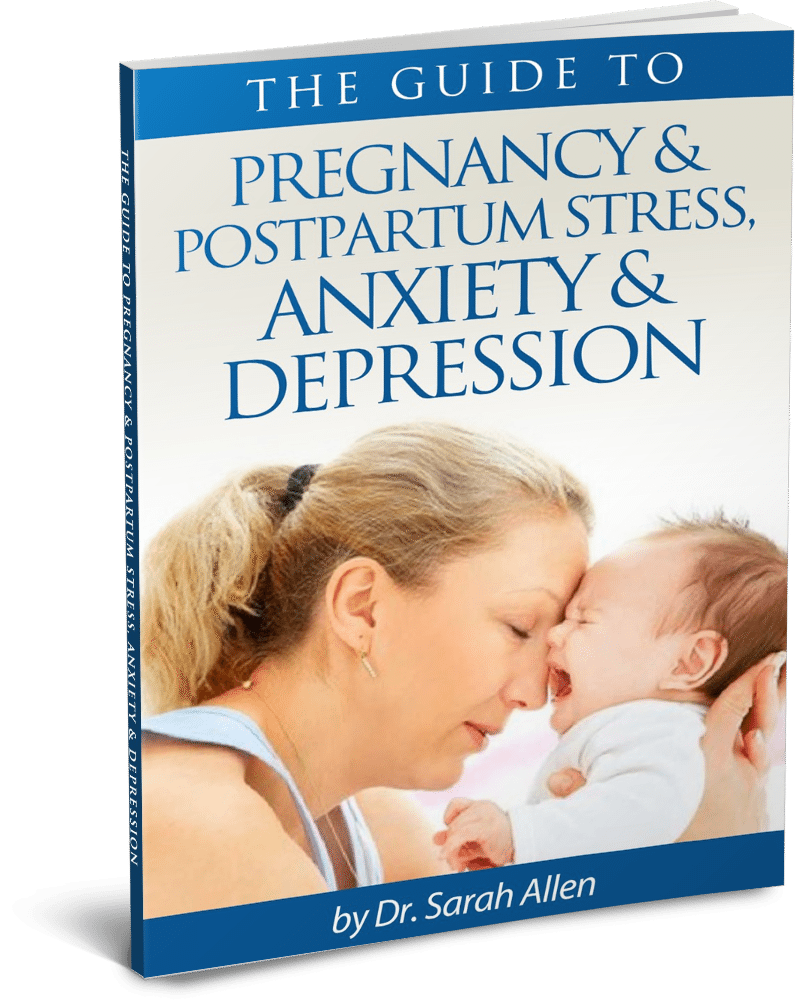
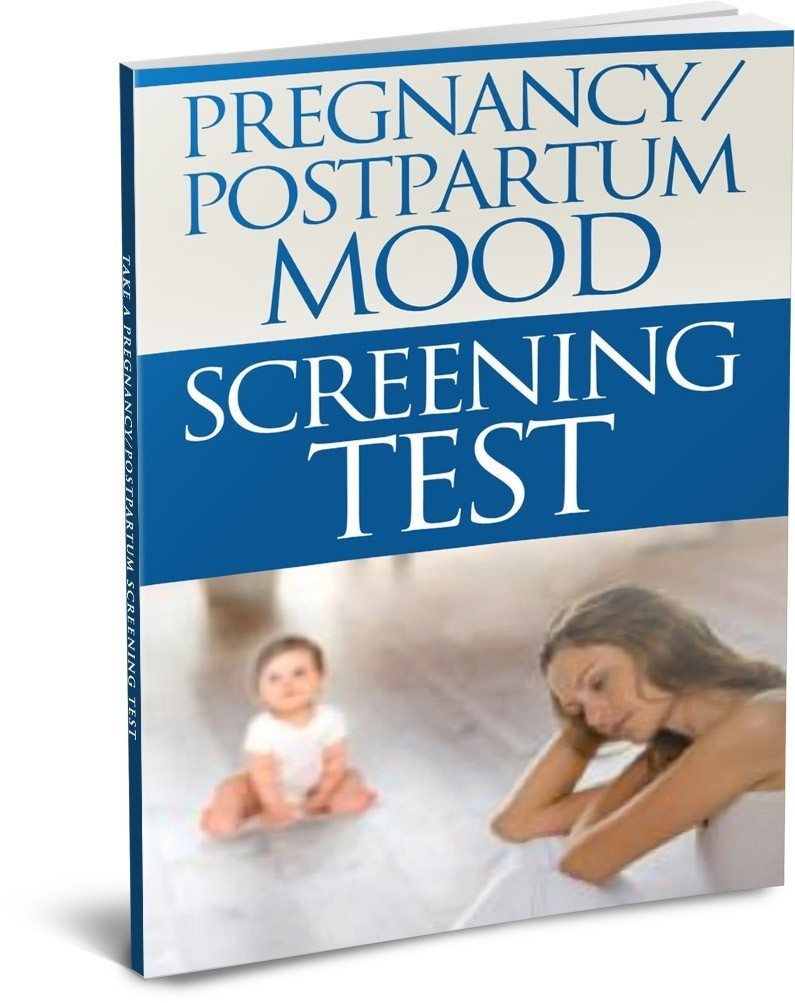
If you want to read more about maternal mental health download the FREE Guide To Pregnancy & Postpartum Stress, Anxiety & Depression. It is full of information about symptoms, different types of maternal mood disorders and advice about what to do to start feeling like yourself again.
Dr. Sarah Allen has 20+ years experience as a psychologist helping women transition to being the mom they want to be. She is also the Director of the Postpartum Depression Alliance of IL, a non-profit offering info and support to pregnant and postpartum moms and their families.
In her Northbrook office, in the North Suburbs of Chicago, or via telephone or online counseling she offers the most convenient way for you to access support and help.
If you have questions after reading this article or the Guide To Pregnancy & Postpartum Stress, Anxiety & Depression or have any questions about how counseling can be useful to your particular circumstances please contact me at 847 791-7722 or fill out the form at the contact page.

Dr. Sarah Allen has 25+ years of experience in private practice helping women to transition to being the mom they want to be. She is the Founding Director of the statewide non-profit Postpartum Depression Alliance of IL. She also specializes in pregnancy loss & infertility & has published research on postpartum depression and traumatic childbirth.
If you would like to work with Sarah, please phone her at 847 791-7722 or on the form below.
If you would like to read more about me and my areas of specialty, please visit Dr. Sarah Allen Bio. Dr. Allen’s professional license only allows her to work with clients who live in IL, FL & the UK and unfortunately does not allow her to give personalized advice via email to people who are not her clients.
Dr. Allen sees clients in person in her Northbrook, IL office or remotely via video or phone.

What Can I Read That Helps Me While I Am Waiting For My First Appointment With Sarah?
If you feel that you may be experiencing pregnancy or postpartum mood disorder, or worry that you may be at risk of developing it, please download my free booklets below.
See each specific webpage to download one or many.
